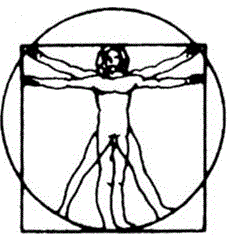
Post Traumatic Stress Disorder
Posttraumatic stress disorder (PTSD) is a psychiatric disorder that may occur in people who have experienced or witnessed a traumatic event, series of events or set of circumstances. An individual may experience this as emotionally or physically harmful or life-threatening and may affect mental, physical, social, and/or spiritual well-being.
There are many causes of PTSD examples include accidents, natural disasters, terrorist acts, war/combat, domestic or other violence, historical trauma, and bullying.
People with PTSD have intense, disturbing thoughts and feelings related to their experience that last long after the traumatic event has ended. They may relive the event through flashbacks or nightmares; they may feel sadness, fear or anger; and they may feel detached or estranged from other people. People with PTSD may avoid situations or people that remind them of the traumatic event, and they may have strong negative reactions to something as ordinary as a loud noise or an accidental touch.
Symptoms of PTSD fall into four categories
-
Intrusion: Intrusive thoughts such as repeated, involuntary memories; distressing dreams; or flashbacks of the traumatic event. Flashbacks may be so vivid that people feel they are reliving the traumatic experience or seeing it before their eyes.
-
Avoidance: Avoiding reminders of the traumatic event may include avoiding people, places, activities, objects and situations that may trigger distressing memories. People may try to avoid remembering or thinking about the traumatic event. They may resist talking about what happened or how they feel about it.
-
Alterations in cognition and mood: Inability to remember important aspects of the traumatic event, negative thoughts and feelings leading to ongoing and distorted beliefs about oneself or others (e.g., “I am bad,” “No one can be trusted”); distorted thoughts about the cause or consequences of the event leading to wrongly blaming self or other; ongoing fear, horror, anger, guilt or shame; much less interest in activities previously enjoyed; feeling detached or estranged from others; or being unable to experience positive emotions (a void of happiness or satisfaction).
-
Alterations in arousal and reactivity: Arousal and reactive symptoms may include being irritable and having angry outbursts; behaving recklessly or in a self-destructive way; being overly watchful of one's surroundings in a suspecting way; being easily startled; or having problems concentrating or sleeping.
In our office we find a combination of services are most effective
to help resolve the symptoms associated with PTSD .
Eye Movement Desentization Reprocessing (EMDR)
Individual, Couples and/or Family Counseling/Psychotherapy.
Click on the services listed above to be taken to that services page
The clinician's working at Behavioral Medicine evaluate all symptoms as an indicator of quality of life. With 28 years of experience, we have seen the negative effects of trauma on the mind, body, spirit and relationships.Our purpose is to help reduce the negative impact of trauma on your life through psychological and self-regulating therapies that rewire your mind, body, spirit for safety and connection.
There is a growing body of research showing effective therapies for PTSD
Click the buttons below to see some of the research related to PTSD
